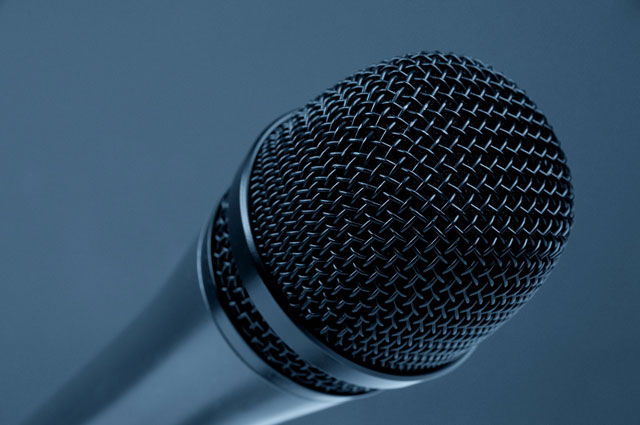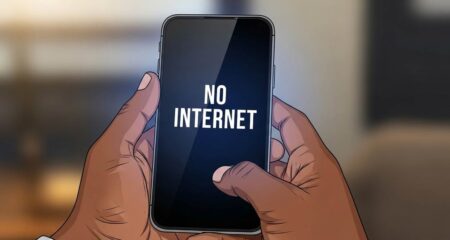
For fans of audio fiction, 2017 promises to be a year of significant change as major players from the world of publishing, broadcasting and technology move into the field.
The big change over the past few years has been the development of radio as podcasting — audio files that can be downloaded and consumed at the listener’s leisure. This has revolutionised the formerly staid world of radio, especially in the field of drama.
There are developments on both sides of the Atlantic.
Out this January is Bronzeville, an audio drama set in 1940s Chicago and starring Lawrence Fishburne and Larenz Tate. It has been hailed by some as “game changing” with its big names and Hollywood production style.
Meanwhile, BBC Radio has declared its intention of targeting an international audience with a “Netflix of the spoken word” with the intention of finding ways to better exploit its vast archive of professionally produced audio.
These developments are markers in a fast-changing landscape. Audio is rapidly going digital and interactive. As radio is increasingly consumed through headphones via a phone or a tablet, it’s a natural next step to link it to other programmes and styles of content.
BBC Radio 4’s Stardust, promoted as “a young man’s quest to gain his heart’s desire” is a great example: using Neil Gaiman’s fan base to drive a social media campaign, it enticed listeners with teaser clips from the drama, a drawing competition and a linked short story by Suzanne Clarke.
The involvement of big names from TV and film is another emerging trend. This has long been the case in the UK where BBC Radio offers big audiences — if not always lavish pay — to well-known actors. Yet growth in podcast drama in the US is now seeing Hollywood names getting in on the act.
Bronzeville is one example, while Homecoming — a psychological drama featuring David Schwimmer and Catherine Keener — is another. And the fact that it is seen as so commercially viable shows the growing interest of advertisers in the loyal following of audio drama listeners.
In with the ‘in-crowd’
These dramas are also evidence that the medium is getting more diverse. The indie audio drama that has emerged over the last five years has been focused strongly of sci-fi and horror, following on from classics like Ruby (1982) and the recent success of shows like the zombie survival saga We’re Alive (2009) and Welcome to Night Vale (2012).
In addition, independent audio producers have been and remain more commonly men. As podcasts become more popular, the range of genres and producers is broadening. The The Bright Sessions, created by Lauren Shippen, is a nice example of a show that both defies easy categorisation and feels almost unique to radio. Premised on the idea of putting normal people with very unusual powers in therapy, the drama is intimate and subtle, rewarding careful listening — it has also been a big hit with audiences jumping from 400 to 300 000 downloads within a year.
The move to digital has led to a marked shift in who listens to audio. Once the preserve of an older generation with the time to catch the radio schedule, streaming is attracting a broader demographic. As Shippen observed in a conversation, “audio dramas do really well in the 18-35 crowd — young people who always have their phones and are always consuming media”. She also notes that the tendency towards “binge-watching” TV translates well to audio serials.

This opportunity has not been missed by publishers, who saw 170% growth in audiobooks in the UK between 2010-2014. At the recent London FutureBook Conference about the future of digital publishing, Jo Surman from HarperCollins UK noted that 42% of the market in audiobooks had only started listening in the last year and that publishers should regard the format as “the easiest way to consume books”.
Just as with Amazon, publishers are alert to the risk that Audible (now the world’s biggest reseller and producers of audiobooks) will come to dominate this emerging market.
The great unknown of 2017 will be how the BBC decides to take forward its vision of a subscription-based, “Netflix-style” service. The BBC is well positioned — it has the world’s largest archive of audio dramas, access to licensing agreements from across its television services and content in a range of languages courtesy of the World Service.
Yet popular tastes are changing and the BBC will need to shift from its focus on radio broadcast timeslots and adopt a much broader range of formats to attract new listeners.
Getting mighty crowded
The biggest risk for both the BBC, Audible and smaller payment-based services is the sheer range of bright new dramas that are appearing weekly on iTunes and other services. This is great news for listeners, but daunting for experienced producers who are now competing against ever more content.
For many, networks such as The Wondery are the answer, providing marketing and much-needed support in the hunt for advertisers in a crowded field. It remains to be seen whether this will lead to a strata of recognised names, or independents becoming squeezed between single-voice start-ups and big-budget productions supported by media corporations.
In a recent conversation, Fred Greenhalgh, veteran producer (The Cleansed, The Dark Tome) and former presenter of Radio Drama Revival saw 2017 in the following terms:
I think we’ll see an inflection point… If these bets pay off … then we are on to something really exciting here. We might also find ourselves at “podcasting peak” and the oversaturation causes a real retraction in the medium.
But, as someone who has seen the industry go from a labour of love by a determined few to the point where it is being taken seriously, Greenhalgh is hopeful that we might see a “sustainable renaissance in audio fiction”. His advice to serious drama producers is: jump in and swim as hard as you can.![]()
- Richard Brooks is research associate at the Centre for Business in Society, Coventry University
- This article was originally published on The Conversation




